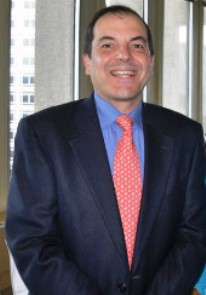What do Cabrera Capital Markets, JonesTrading, LaBranche Financial Services and WJB Capital Group have in common?
Over the past several months, each has opened an overnight trading desk in the U.S. to trade foreign stocks in real-time.
In fact, independent shops are entering a space that not long ago was inhabited by only the largest investment banks. So why are these firms expanding with a longer day by adding a so-called trading graveyard shift? The answer is that they need to and they can.
These firms are looking to generate more revenue at a time when commissions for U.S. equities have shrunk, industry experts said. They want to offset that by offering more services to clients whose appetite for foreign stocks has increased.
And they are looking at a growing available talent pool for their desks as bulge bracket firms have been shedding international traders over the past two years.
At Cabrera, longtime buyside trader Larry Peruzzi jumped at the chance to lead the execution-only firm’s new international trading desk out of Boston. The space is open to new players who bring a different model, he said.

“It makes sense when you look at some of these international markets. You can launch [a desk] with experienced traders and some good connectivity to these local marketplaces,” he said. “There are still a lot of markets where these high-touch platforms can add value.”
Cabrera has one person working during trading hours in Asia, one during European hours and one generalist: Peruzzi. It also offers Latin American and Canadian coverage.
“We’re going where the liquidity is,” he said. “If the liquidity is overseas in the local marketplaces, we’re going to go there. And if the liquidity is in the U.S. crossing networks, we’ll be there.”
International desks typically trade in Asian or European equities markets when those markets are open. Many of those traders trade either locally–such as Austrian equities in Vienna–or channel information and flow through a centralized, regional nexus, like London for European markets.
And international desks that need high-touch service in a specific market a firm doesn’t otherwise cover can have strategic partners in each of the local markets.
The overseas trend basically started with the compression of U.S. commissions, Peruzzi said. Because trading internationally is more difficult–given that each country has a different market structure–it can be expensive. Consequently, firms can charge higher commissions.

“You want to be a one-stop shop for your customers,” said Craig Rothfeld, executive director and one of two managing partners at WJB Capital Group. “By opening myself up in Europe and in Asia, I give my customers other avenues to pay me.”
WJB launched an Asian desk out of its San Francisco office in February, Rothfeld said. It opened its European desk last summer.
In March, JonesTrading launched a real-time international desk that is run from a new Charleston, S.C., office. Jones opened the office to build the firm’s international presence and to aggregate all its international orders.
Acting as an agent, the desk will broker equity trades in local markets across the globe to a U.S. client base, said Steve Tullar, who runs global sales for Jones from the Aspen, Colo., office.
“You really need to offer global products,” Tullar said. “Who is just a domestic broker anymore? Now a customer can execute with us 24/6.”
(c) 2009 Traders Magazine and SourceMedia, Inc. All Rights Reserved.
http://www.tradersmagazine.com http://www.sourcemedia.com/




